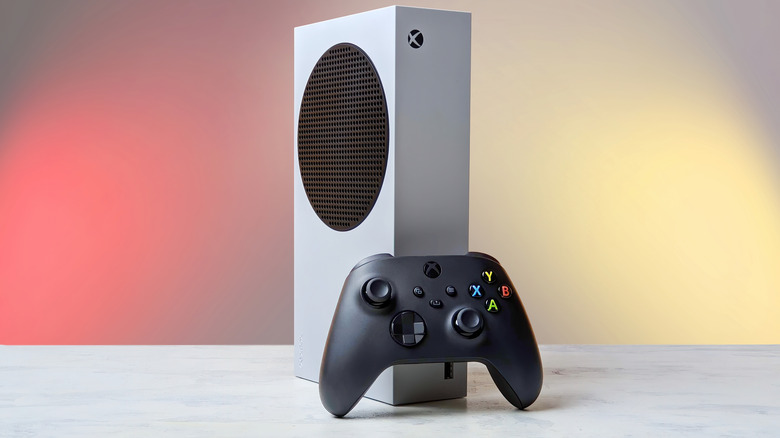Microsoft Reveals The Expensive Truth About Consoles
Gamers know that next-gen consoles eat up a lot of energy, but they also cost a good deal of money to produce — maybe even more than anyone knew. Rumors abound that Microsoft might be taking a loss on its new Series X|S consoles, hoping to make up the difference in software. Those rumors have finally been confirmed, thanks to the Epic v. Apple trial proceedings.
The information that Microsoft operates at a loss in terms of consoles is only one revelation among many from the ongoing Epic v. Apple case. However, it's a big one. Now, gamers know for sure that Microsoft doesn't make money on its consoles, and relies on other revenue streams to make up for the loss.
The information came as part of Lori Wright's testimony at the Epic v. Apple trial. As the leader of business development for Xbox, Wright discussed Microsoft's business model in comparison to Epic. According to Protocol, while talking about Xbox revenue, Epic's lawyer Wes Earnhardt asked bluntly, "How much margin does Microsoft earn on the sale on the Xbox consoles?"
Wright responded, "We don't. We sell the consoles at a loss."
How does Xbox earn profits?
Wright elaborated, explaining that Microsoft has never made a profit on Xbox consoles, and that it has always sought to bolster profits with software and, more importantly, subscription services. Microsoft earns most of its money from services like Xbox Live Gold and Xbox Game Pass.
Following a suspicious price increase for Xbox Live Gold earlier this year, and a subsequent backtrack on that price increase, it makes sense to learn that subscription services are used by Xbox to offset the cost of producing consoles. Wright described the low price point of the Xbox console as part of an "end-to-end consumer experience" Microsoft tries to create for its customers.
Earnhardt's line of questioning did have a larger role in the case, even if it did dig into Microsoft's inner workings. Epic's legal team established that console markets differ greatly from the mobile games market. While console markets can bolster profits with subscription services and software, the mobile version of "Fortnite" must split revenue with Apple, giving it a steep cut of profits. Epic's legal team could be able to set up further arguments by establishing a clear view of how other game companies, like Xbox, do business.
There's still much more to come from the Epic v. Apple case, and fans will likely learn more than they ever wanted to know about the business practices of big name games companies.


